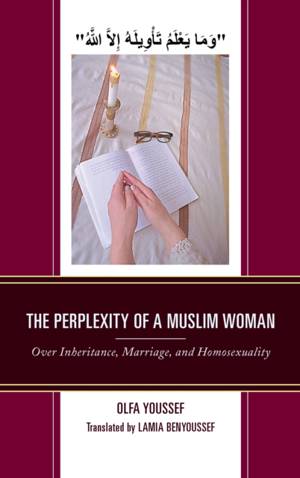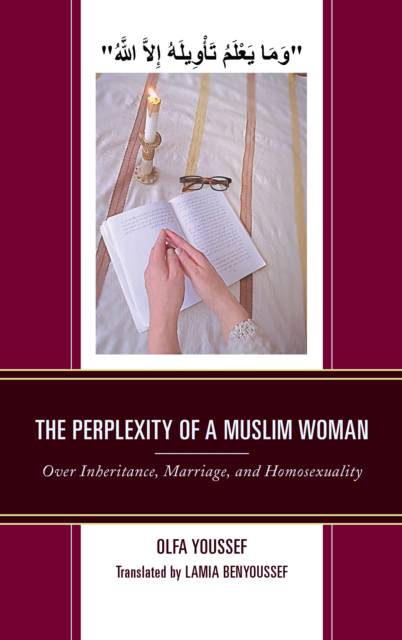
- Afhalen na 1 uur in een winkel met voorraad
- Gratis thuislevering in België vanaf € 30
- Ruim aanbod met 7 miljoen producten
- Afhalen na 1 uur in een winkel met voorraad
- Gratis thuislevering in België vanaf € 30
- Ruim aanbod met 7 miljoen producten
Zoeken
The Perplexity of a Muslim Woman
Over Inheritance, Marriage, and Homosexuality
Olfa Youssef
Paperback | Engels
€ 71,95
+ 143 punten
Uitvoering
Omschrijving
Using the methodology of modern scholars in the fields of Arabic lexicography, linguistics, and psychoanalysis, Tunisian feminist scholar Olfa Youssef investigates the rulings about inheritance, marriage, and homosexuality in the Qur'anic text itself and compares them with the interpretations provided by male Muslim theologians and legal scholars from medieval times to the present. In this book, she makes five central arguments: (1) There is a discrepancy between the layered signification in the Qur'anic text itself and the sutured explanations by religious scholars which have been enacted into law in many Muslim countries today; (2) the plurality of meanings is the quintessential essence of the Qur'an as evidenced in the absence of any sura over which there was unanimous agreement among Muslim scholars; (3) when male privilege was at stake, male legal scholars, to protect their own interests, ignored the divine text and based their rulings on human consensus; (4) Muslim medieval views on gender and homosexuality were more tolerant than contemporary ones; and finally (5), preferring indetermination and perplexity over the finality and certainties found in the judgements of male theologians, Youssef argues that only God knows the Qur'an's true meaning. Her job as a Muslim female scholar is only to raise questions over those human interpretations that many Muslim societies mistake for divine will.
Specificaties
Betrokkenen
- Auteur(s):
- Vertaler(s):
- Uitgeverij:
Inhoud
- Aantal bladzijden:
- 164
- Taal:
- Engels
Eigenschappen
- Productcode (EAN):
- 9781498541718
- Verschijningsdatum:
- 15/09/2018
- Uitvoering:
- Paperback
- Formaat:
- Trade paperback (VS)
- Afmetingen:
- 152 mm x 229 mm
- Gewicht:
- 249 g

Alleen bij Standaard Boekhandel
+ 143 punten op je klantenkaart van Standaard Boekhandel
Beoordelingen
We publiceren alleen reviews die voldoen aan de voorwaarden voor reviews. Bekijk onze voorwaarden voor reviews.











